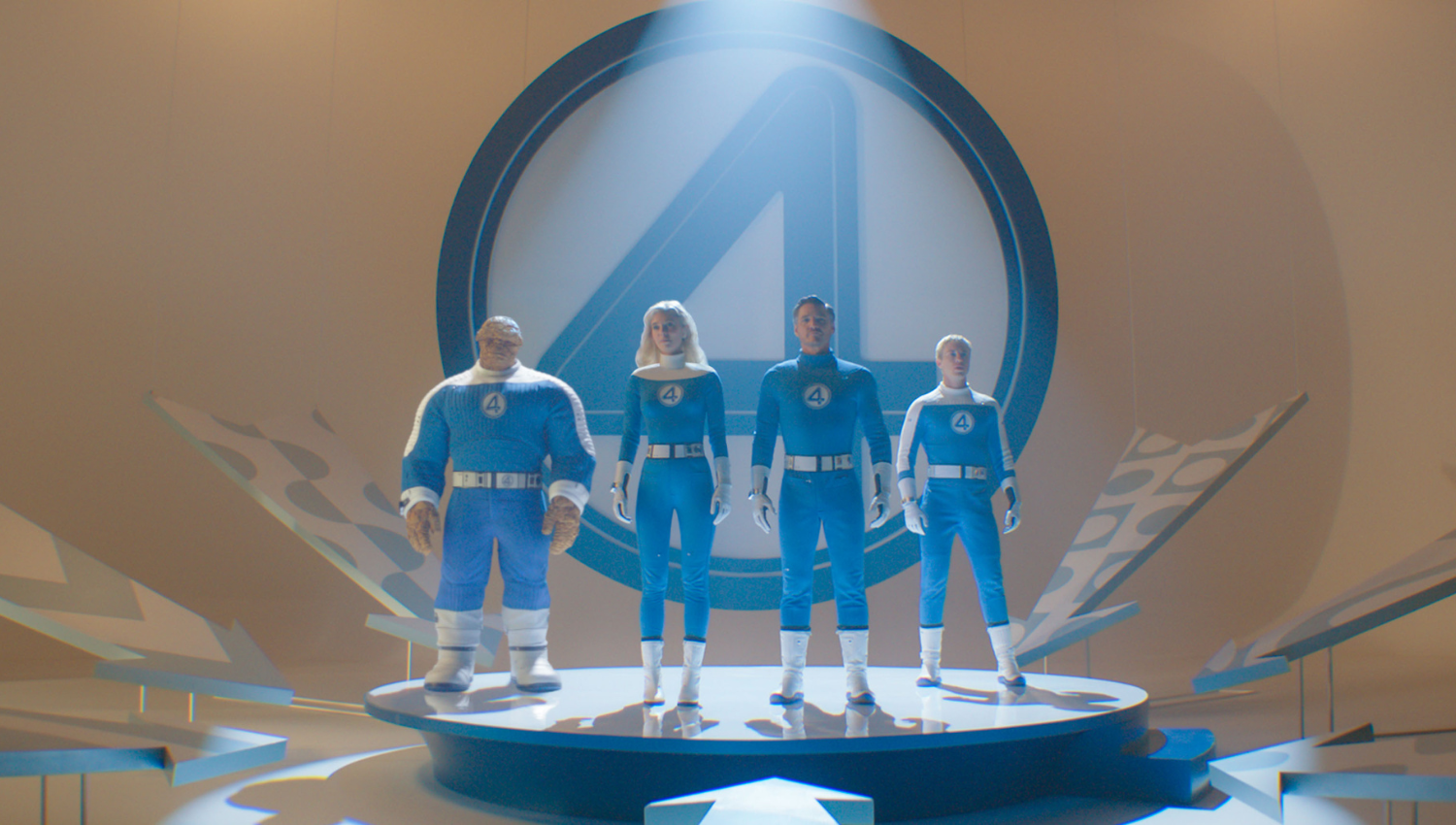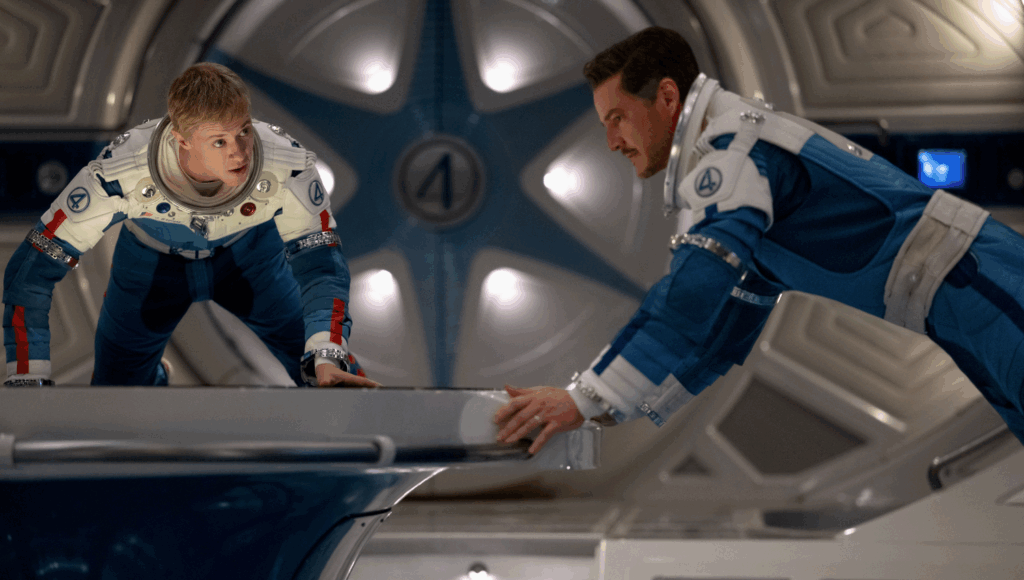
The Fantastic Four: First Steps
James Brown
Marvel’s so-called “First Family” returns not with a bang, but with a strangely warm crackle—a mid-century fireplace in the corner of a laboratory humming with unstable molecules. Matt Shakman’s Fantastic Four: First Steps is both a reset and a provocation, asking whether a property that’s been burned twice in the past two decades can still find its cultural temperature. The answer, it seems, is yes—if you dial down the spectacle long enough to hear the characters breathe.
Gone are the migraine-inducing set pieces and perfunctory banter of the earlier iterations. In their place is an oddly patient origin story that treats Reed Richards (Pedro Pascal, exuding a distracted brilliance) less like a quip dispenser and more like a man genuinely haunted by the math. Sue Storm (Vanessa Kirby), here, is no mere adjunct to Reed’s genius—she’s the moral ballast, the one who understands that invisibility is sometimes a gift and sometimes an act of cowardice. Her dynamic with Johnny Storm (Joseph Quinn) has an authentic sibling friction—equal parts affection and exasperation—that grounds the film’s emotional register.

Then there’s Ben Grimm (Ebon Moss-Bachrach), the blue-collar philosopher in a body of orange rock, carrying the film’s most affecting line deliveries. His “It’s still me in here” lands like an uninvited truth in a world addicted to transformation. Moss-Bachrach plays him with a resignation that feels earned, never mawkish.
...these are not gods or warriors, but a family—messy, imperfect, bound together not by destiny but by choice.
Then there’s Galactus (voiced by Ralph Ineson, bringing a glacial gravitas that seeps into every syllable), rendered not as a cartoonish planet-muncher but as a cosmic inevitability—less a villain than a natural disaster with philosophy. Ineson’s deep, weathered voice turns exposition into prophecy, his every line tinged with the fatalism of a being who has seen the rise and fall of galaxies. Shakman resists the urge to reduce him to a final-boss brawler; instead, Galactus is an argument in motion, forcing the Four to weigh the value of one planet against the inevitability of universal entropy. In their most riveting exchanges, Reed tries to reason with him not as a foe but as a fellow intellect staring down the void, while the audience wonders—uncomfortably—whether the Devourer of Worlds might, in some cold calculus, be right.
Visually, the film is both retro and modern. Production designer Kasra Farahani leans into mid-century science pulp—chrome consoles, tactile switches, and saturated blues—while cinematographer Jess Hall bathes it all in a warm, humanist light. The action sequences are precise, almost surgical; when the big climactic battle arrives, it’s the culmination of narrative momentum, not a contractual obligation.
Fantastic Four: First Steps doesn’t reinvent the superhero genre. Still, it remembers something the genre often forgets: these are not gods or warriors, but a family—messy, imperfect, bound together not by destiny but by choice. By the time the credits roll, you believe they’ve earned their moniker, not because they can stretch, vanish, flame on, or clobber, but because they endure each other’s flaws without flinching.
It’s not the loudest Marvel movie, nor the flashiest. But in its best moments, it’s the most human. And maybe, for the Fantastic Four, that’s finally enough.
Final Thought
In a genre addicted to noise, 'First Steps' is relatively quiet, but visually rich and emotionally resonant, a hopeful sign from Marvel of more smart storytelling to come.
